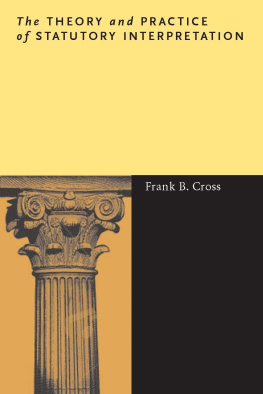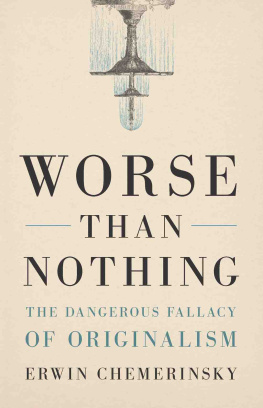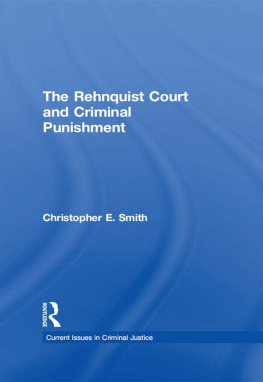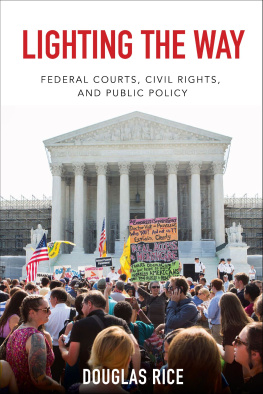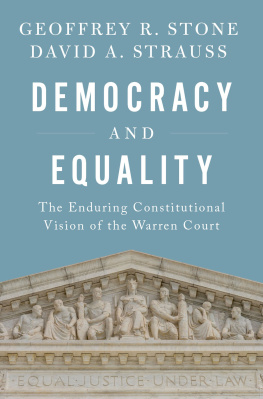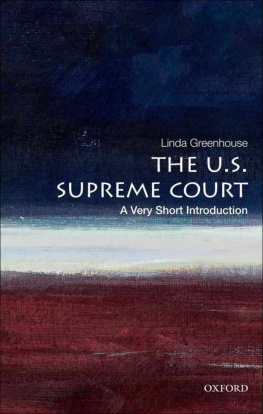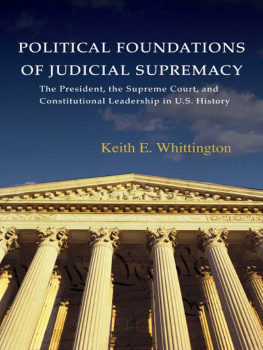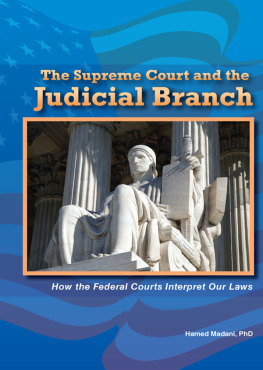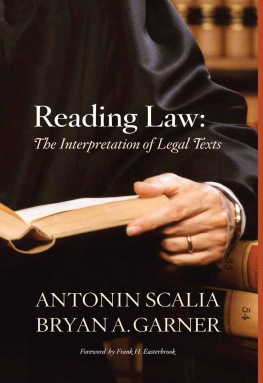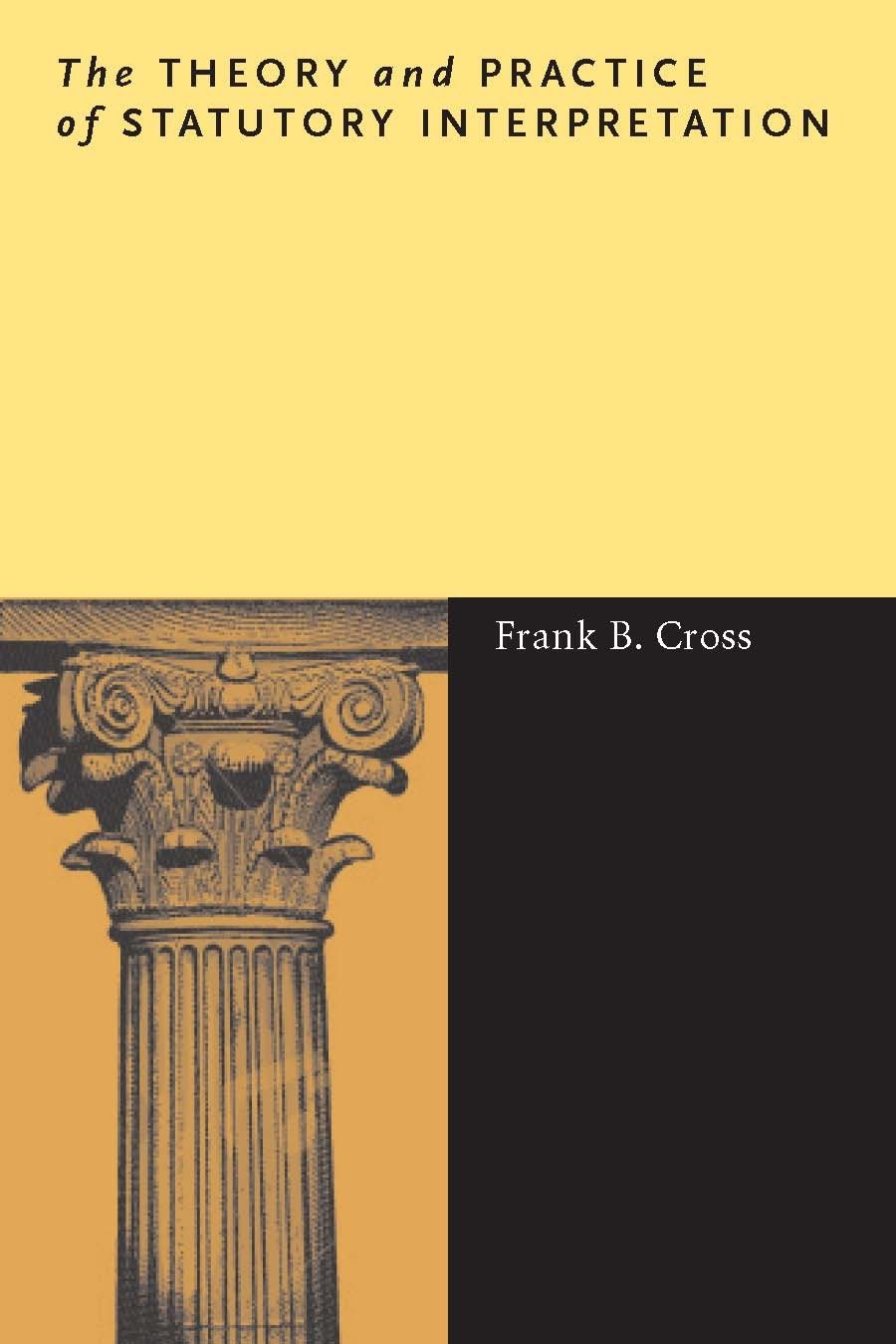Einer Elhauge, Preference-Eliciting Statutory Default Rules, 102 Columbia Law Review 2027, 2070 (2002).
Adrian Vermeule, Judging under Uncertainty: An Institutional Theory of Legal Interpretation 31 (2006).
Abner S. Greene, The Missing Step of Textualism, 74 Fordham Law Review 1913, 1915 (2006).
William Eskridge, Dynamic Statutory Interpretation 131 (1994).
Matthew C. Stephenson, Legislative Allocation of Delegated Power: Uncertainty, Risk, and the Choice Between Agencies and Courts, 119 Harvard Law Review 1036 (2006).
John D. Huber & Charles R. Shipan, Deliberate Discretion?: The Institutional Foundations of Bureaucratic Autonomy 1 (2002).
Id. at 33.
David B. Spence & Frank B. Cross, A Public Choice Case for the Administrative State, 89 Georgetown Law Journal 97 (2000).
David Epstein & Sharyn OHalloran, Delegating Powers: A Transaction Cost Politics Approach to Policy Making under Separate Powers 27 (1999).
H. L. A. Hart, The Concept of Law 124136 (2nd ed. 1995).
Friedrich v. City of Chicago, 888 F.2d 511, 514 (7th Cir. 1989).
The Federalist No. 37 (James Madison) (Isaac Kramnick ed. 1987).
See Robert Katzmann, Courts and Congress 61 (1997) (noting that ambiguity is a deliberate strategy to secure a majority coalition in support of the legislation).
Landgraf v. USI Film Productions, 511 U.S. 244, 262263 (1994).
James J. Brudney, Congressional Commentary on Judicial Interpretations of Statutes: Idle Chatter or Telling Response?, 94 Michigan Law Review 1, 10 (1994).
George I. Lovell, Legislative Deferrals: Statutory Ambiguity, Judicial Power, and American Democracy (2003).
Id. at xviii.
Joseph A. Grundfest & A. C. Pritchard, Statutes with Multiple Personality Disorders: The Value of Ambiguity in Statutory Design and Interpretation, 54 Stanford Law Review 627 (2002).
Richard J. Pierce, Jr., Political Accountability and Delegated Power: A Response to Professor Lowi, 36 American University Law Review 391, 398401 (1987).
Schooner Paulinas Cargo v. United States, II U.S. (7 Cranch) 52, 60 (1812) (Marshall, C. J.).
John F. Manning, Textualism and Legislative Intent, 93 Virginia Law Review 419, 419 (2005) (referring to the rational as the touchstone of federal statutory interpretation for this era).
Richard A. Posner, Statutory Interpretationin the Classroom and in the Courtroom, 50 University of Chicago Law Review 800, 817 (1983)
Archibald Cox, Judge Learned Hand and the Interpretation of Statutes, 60 Harvard Law Review 370 (1947).
Karl M. Llewellyn, Remarks on the Theory of Appellate Decision and the Rules or Canons about How Statutes Are to Be Construed, 3 Vanderbilt Law Review 395, 401 (1950).
General Accounting Office, Principles of Federal Appropriations Law 259 (1991).
Id. at 260.
Id.
William N. Eskridge, Dynamic Statutory Interpretation 16 (1994).
Frank Easterbrook, The Role of Original Intent in Statutory Construction, 11 Harvard Journal of Law and Public Policy 61 (1988).
Thomas W. Merrill, Textualism and the Future of the Chevron Doctrine, 72 Washington University Law Quarterly 351, 353 (1994).
John F. Manning, What Divides Textualists from Purposivists?, 106 Columbia Law Review 70, 98 (2006).
Id. at 70, 107.
Daniel A. Farber & Philip P. Frickey, Practical Reason and the First Amendment, 34 UCLA Law Review 1615, 1636 (1987).
I Holmes-Laski Letters 249 (M. Howe ed. 1953).
Martin Redish, Federal Common Law and American Political Theory: A Response to Professor Weinberg, 83 Northwestern University Law Review 853, 857 (1989).
Martin Shapiro, The Supreme Court and Administrative Agencies 1929 (1968).
Statutory Interpretation supra note 22 at 800, 811.
T. Alexander Aleinikoff, Updating Statutory Interpretation, 87 Michigan Law Review 20, 21 (1988).
Judging under Uncertainty , supra note 2 at 42.
Nicholas S. Zeppos, The Use of Authority in Statutory Interpretation, 70 Texas Law Review 1073, 1100 (1992).
Daniel A. Farber & Brett H. McDonnell, Is There a Text in this Class?: The Conflict Between Textualism and Antitrust, 14 Journal of Contemporary Legal Issues 619, 620 (2005).
William Baxter, Separation of Powers, Prosecutorial Discretion, and the Common Law Nature of Antitrust Law, 60 Texas Law Review 661, 663 (1982).
Martin H. Redish, Federal Common Law and American Political Theory: A Response to Professor Weinberg, 83 Northwestern University Law Review 853, 857 (1989).
Robert E. Scott & George G. Triantis, Anticipating Litigation in Contract Design, 115 Yale Law Journal 814 (2006).
Delegating Powers , supra note 9, at 37.
Deliberate Discretion? , supra note 6, at 9.
See Einer Elhauge, Statutory Default Rules (forthcoming Harvard University Press).
United States v. Jin Fuey Moy, 241 U.S. 394, 402 (1916).
Beth M. Henschen, Judicial Use of Legislative History and Intent in Statutory Interpretation, 10 Legislative Studies Quarterly 353 (1985).
Victoria F. Nourse & Jane S. Schacter, The Politics of Legislative Drafting: A Congressional Case Study, 77 New York University Law Review 575, 617 (2002).
William N. Eskridge, Jr. & John Ferejohn, Superstatutes: The New American Constitutionalism (forthcoming).
Nicholas Quinn Rosenkranz, Federal Rules of Statutory Interpretation, 115 Harvard Law Review 2085, 2086 (2002).
Id. at 2088.
Morell E. Mullins, Sr., Tools, Not Rules: The Heuristic Nature of Statutory Interpretation, 30 Journal of Legislation 1, 4 (2003).
Jeffrey A. Segal & Harold J. Spaeth, The Supreme Court and the Attitudinal Model (1993); Jeffrey A. Segal & Harold J. Spaeth, The Supreme Court and the Attitudinal Model Revisited (2002).
The Supreme Court and the Attitudinal Model , supra note 55, at 259260.
Lawrence S. Wrightsman, Judicial Decision Making: Is Psychology Relevant? 5556 (1999).
Mark J. Richards & Herbert M. Kritzer, Jurisprudential Regimes in Supreme Court Decision Making, 96 American Political Science Review 305 (2002).
Frank Cross, Decision Making in the U.S. Courts of Appeals 178200 (2007).
See Lawrence Baum, Judges and Their Audiences (2006).
See Terri Jennings Peretti, In Defense of a Political Court (1999).
See Legislative Deferrals , supra note 16.
Adrian Vermeule, Judging under Uncertainty: An Institutional Theory of Legal Interpretation 77 (2006).
Adrian Vermeule, Interpretive Choice, 75 New York University Law Review 74, 77 (2000).

